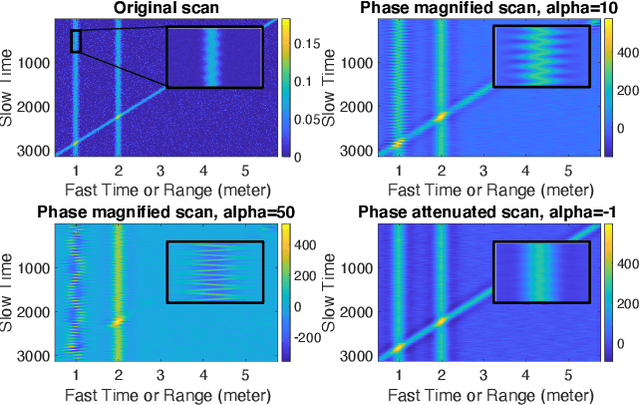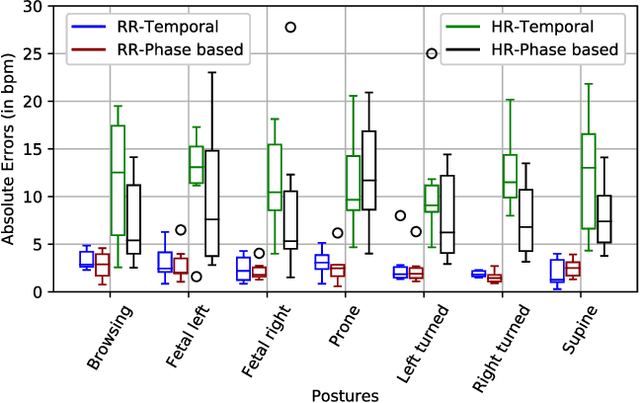Eulerian Phase-based Motion Magnification for High-Fidelity Vital Sign Estimation with Radar in Clinical Settings
Paper and Code
Dec 03, 2022



Efficient and accurate detection of subtle motion generated from small objects in noisy environments, as needed for vital sign monitoring, is challenging, but can be substantially improved with magnification. We developed a complex Gabor filter-based decomposition method to amplify phases at different spatial wavelength levels to magnify motion and extract 1D motion signals for fundamental frequency estimation. The phase-based complex Gabor filter outputs are processed and then used to train machine learning models that predict respiration and heart rate with greater accuracy. We show that our proposed technique performs better than the conventional temporal FFT-based method in clinical settings, such as sleep laboratories and emergency departments, as well for a variety of human postures.
 Add to Chrome
Add to Chrome Add to Firefox
Add to Firefox Add to Edge
Add to Edge